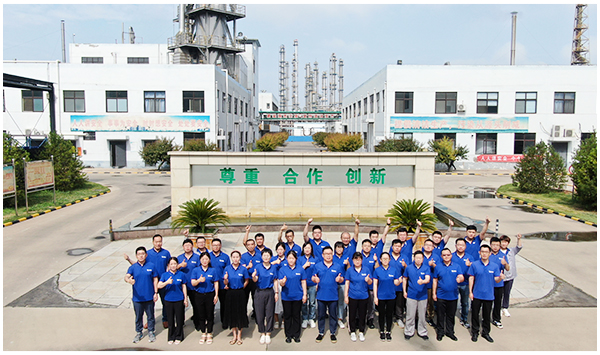
News
Aug . 06, 2024 07:56 Back to list
Exploring the Applications and Manufacturers of Disodium EDTA in Various Industries for Improved Efficiency
The Use of Disodium EDTA Applications and Benefits
Disodium EDTA, or ethylenediaminetetraacetic acid, is a powerful chelating agent widely utilized across various industries due to its unique ability to bind metal ions. As a sodium salt of EDTA, disodium EDTA has numerous applications, particularly in pharmaceuticals, cosmetics, food processing, and water treatment. This article explores the uses and benefits of disodium EDTA, along with the role of manufacturers in ensuring its quality and efficacy.
Applications of Disodium EDTA
1. Pharmaceuticals In the pharmaceutical industry, disodium EDTA is commonly used as a stabilizer for formulations, especially those that contain metal ions, which could potentially degrade the active ingredients. By sequestering these metals, disodium EDTA helps to enhance the stability and shelf life of medications, including injections and oral dosages. Moreover, it plays a crucial role in detoxification therapies, particularly in treating heavy metal poisoning, where it aids in the removal of toxic metals from the body.
2. Cosmetics and Personal Care Products Disodium EDTA is frequently included in cosmetic formulations to improve product stability and enhance the overall aesthetic experience. It acts as a preservative and prevents the degradation of other components, ensuring that products remain effective and safe for consumer use. Its ability to bind metal ions also helps prevent issues such as discoloration and rancidity, which can detract from the quality of cosmetics.
3. Food Industry In food processing, disodium EDTA serves as a food preservative and stabilizer. It helps maintain the color, flavor, and nutritional value of food products by preventing the oxidation of fats and oils, which can lead to spoilage. Additionally, it is used to enhance the safety of food by chelating trace metals that could catalyze the growth of harmful microorganisms.
4. Water Treatment The water treatment industry utilizes disodium EDTA for its ability to bind heavy metals and facilitate their removal from water supplies. This chelation process helps in achieving cleaner, safer water by reducing the concentration of harmful metals such as lead and mercury. The compound is particularly valuable in industrial applications where metal removal is necessary for compliance with environmental regulations.
disodium edta use manufacturer

Benefits of Using Disodium EDTA
The effectiveness of disodium EDTA as a chelating agent brings several benefits across various sectors. Firstly, its ability to enhance the stability and shelf life of products is crucial in industries where quality and safety are paramount. By preventing metal-induced degradation, disodium EDTA ensures that products maintain their efficacy until the end of their shelf life.
Secondly, disodium EDTA's role in detoxification and treatment of heavy metal poisoning is a significant health benefit. This application underscores the importance of disodium EDTA in medical therapies, providing a mechanism for safer and more effective treatment of toxic exposures.
Finally, the use of disodium EDTA in food preservation not only enhances quality but also contributes to public health safety by reducing the risk of foodborne illnesses.
The Role of Manufacturers
Manufacturers play a pivotal role in the production and supply of high-quality disodium EDTA. With strict industry standards and regulations, it is imperative that manufacturers prioritize purity and reliability in their products. This ensures that disodium EDTA can be used effectively in sensitive applications, whether in pharmaceuticals, cosmetics, food production, or water treatment.
In conclusion, disodium EDTA is a versatile and valuable compound used in a myriad of applications. Its ability to effectively bind metal ions contributes to stability, safety, and quality across various industries. With ongoing advancements and better manufacturing practices, the future of disodium EDTA looks promising, supporting a wide range of products that enhance everyday life while ensuring public health and safety.
-
Polyaspartic Acid Salts in Agricultural Fertilizers: A Sustainable Solution
NewsJul.21,2025
-
OEM Chelating Agent Preservative Supplier & Manufacturer High-Quality Customized Solutions
NewsJul.08,2025
-
OEM Potassium Chelating Agent Manufacturer - Custom Potassium Oxalate & Citrate Solutions
NewsJul.08,2025
-
OEM Pentasodium DTPA Chelating Agent Supplier & Manufacturer High Purity & Cost-Effective Solutions
NewsJul.08,2025
-
High-Efficiency Chelated Trace Elements Fertilizer Bulk Supplier & Manufacturer Quotes
NewsJul.07,2025
-
High Quality K Formation for a Chelating Agent – Reliable Manufacturer & Supplier
NewsJul.07,2025
